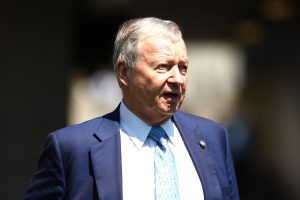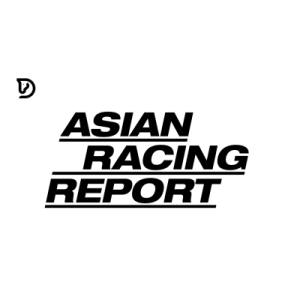Could the mutual benefits of ‘World Pool’ finally bring together two of global racing’s most influential figures?
If we were to put together a ‘power rankings’ of horse racing’s most influential figures, then Hong Kong Jockey Club boss Winfried Engelbrect-Bresges and his Racing NSW counterpart Peter V’landys would fill the quinella places.
Let’s leave aside the argument of who would be in pole position – I am not in the mood to upset either of them on a Monday – and look to the positive of racing’s two political strongmen working together on a project of international significance after nearly 15 years of animosity.
V’landys’ slot race The Everest has been central to his single-minded (and some would say self-interest driven) shake-up of the Australian racing scene, but it is Engelbrecht-Bresges’ drive to reinvigorate parimutuel betting pools with the ‘World Pool’ that could provide a salve for a sport facing myriad existential threats internationally.
World Pool is where Hong Kong ‘hosts’ the betting pool for major events around the world, allowing punters in different jurisdictions to bet into the massive liquidity provided by HKJC customers and other participating jurisdictions.
Saturday was the first time NSW TAB customers were involved and the commingled handle for The Everest alone reached HK$57.7 million (US$7.4m). In total, HK$328m (US$41.9m) was bet on the nine World Pool races from Randwick, a solid result given Hong Kong punters, who provide the lion’s share of liquidity, prefer European racing for its evening time simulcasts.
That the World Pool was extended to include a non-Group 1 race was breaking new ground but what was most meaningful was the breaking of bread between V’landys and Engelbrecht-Bresges that this partnership represented.

Legal action was considered by the HKJC and Engelbrecht-Bresges called the move “disrespectful to the core values of due process,” while V’landys argued that even though he respected the HKJC decision, Munce had “already paid a heavy price for mistakes made” and that it would be “the best thing for all parties to move forward.”
It has taken nearly 15 years for the two heavy hitters to work together and the World Pool concept could be worth the wait in terms of global impact. Parimutuel betting, the backbone of the massive funding that flows to the legal bookmaker-free jurisdictions HKJC and Japan Racing Association (JRA), has dwindled elsewhere.
The World Pool partnerships not only bring an instant injection of funds to the governing body hosting the race but the increased liquidity has the snowball effect of larger punters getting involved on ‘the tote’, where previously they might have been afraid of cannibalising their own prices. Larger pools are also a defence against the growing threat of illegal or grey market betting, which commonly use the tote price as a basis for its product and result in smaller pools being the subject of price manipulation.
Had I not seen it myself, I would have thought there was as much chance of EB riding the Everest winner in his trademark blue suit as there was him enjoying a sunny spring day in Sydney as a guest, as he did on Saturday.
Engelbrecht-Bresges’ presence might have been significant on other levels too: he is now the International Federation of Horseracing Authorities (IFHA) chairman. Could he one day act as a peacemaker of sorts in V’landys’ bitter battle with the other Australian states?

The EB v PVL impasse was a huge threshold to cross but more barriers remain for the World Pool brand to form a truly world pool.
The United States, where punters have been playing into Hong Kong’s pools at Sha Tin and Happy Valley via commingling, has long been ripe for the innovation World Pool could bring to its own big days. Paltry betting pools have stopped serious American horseplayers from betting big, and the low liquidity causes leakage to illegal offshore markets.
But the final frontier is Japan and its loyal fan base betting abroad into World Pool races and perhaps even one day the JRA’s monster big race pools acting as host.
Sunday’s G1 Shuka Sho at Kyoto held ¥18 billion – more than US$120m – on that race alone. The season-ending betting frenzy that is the Arima Kinen held ¥ 52,155,046,600 (US$390m) and ¥65,536,144,300 (US$490m) on the day in 2022.
With mind-bending figures like that, there just isn’t the need for the JRA to collaborate with other jurisdictions. The JRA does not bow to anybody politically, because it simply exists in its own self-sustaining bubble.
But if the two biggest power brokers in the sport can put aside differences and pull in the same direction, then perhaps, in time and with their goals aligned on at least one project, then anything is possible.
Author: Michael Cox from the Asian Racing Report
Read more independent horse racing journalism at Asian Racing Report
